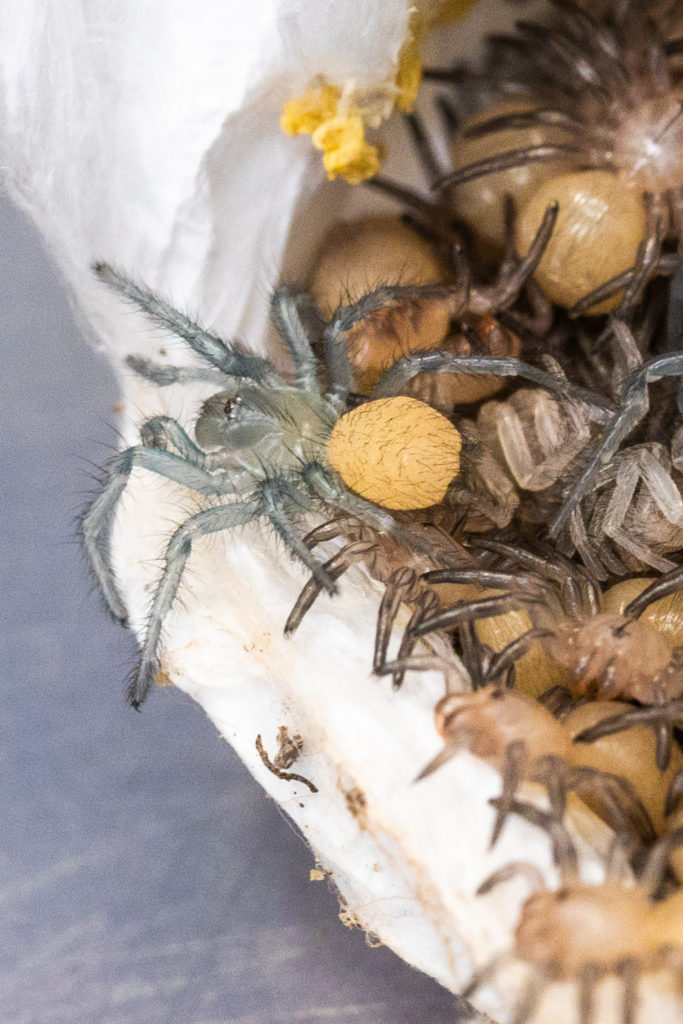Funnel-web spider breeding season has arrived early at the Australian Reptile Park with a major development – four egg sacs have already been laid at the Park’s dedicated Funnel-web Spider Breeding Facility.
Each sac contains up to 150 spiderlings that will one day help save Australian lives.
Laid earlier than expected, the egg sacs will be incubated by the Park’s expert team until hatching.
The spiderlings will be raised to adulthood, with males joining the Park’s life-saving venom program and females carefully released back into the wild.
Following recent heavy rain, male funnel-webs in the wild are now more likely to be on the move in search of a mate or shelter, while females may also be laying egg sacs.
This means residents are at greater risk of encountering these venomous spiders in backyards, sheds, pool filters, and even inside homes.
The Australian Reptile Park is urgently calling on the public to safely collect live funnel-web spiders and egg sacs and hand them in to the Park or one of the many drop-off locations across Greater Sydney.
These donations are critical to the venom program, which has ensured no deaths from a funnel-web spider bite in over 40 years.
Spider Keeper Emma Teni said with breeding season almost here, residents needed to remain vigilant.

“Each egg sac contains around 150 spiderlings, and every single one of those baby spiders will grow up to contribute venom to our program,” she said.
“That venom is turned into antivenom – and that antivenom saves lives.
“Handing in a spider or egg sac literally makes you a life-saver.”
Sydney funnel-web spiders prefer cool, humid hiding places such as under logs, rocks, and garden debris.
Indoors, they are often found in laundries, garages, or in shoes left outside.
The Park urges residents to remain cautious, always check shoes before putting them on, and keep clothing and washing off the floor.
Spiders and egg sacs donated by the public are carefully incubated, hatched, and raised for venom extraction.
The venom is then sent to CSL Seqirus, the only producer of funnel-web antivenom, helping to save lives across Australia.
The Park reminds the public that in the event of a bite, it is critical to remain calm, apply a pressure immobilisation bandage immediately, and seek urgent hospital treatment.
For more information, visit: www.reptilepark.com.au




Be the first to comment on "Be on the lookout for funnel-webs"